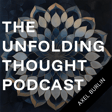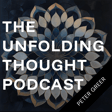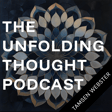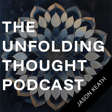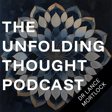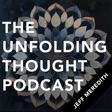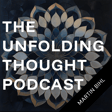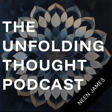
40–Ian Mai: Mastering ADHD and Impulse Control through Inner Strength
In this episode of The Unfolding Thought Podcast, Eric Pratum is joined by Ian Mai, an ADHD and impulse-control coach dedicated to helping people understand and transform their impulsive behaviors into strengths. Ian shares his deeply personal journey—from confronting internet addiction and infidelity to achieving meaningful and sustainable recovery through ADHD awareness and inner strength training.
Ian outlines the psychological foundations of impulsive behavior, describing how emotional disregulation, dopamine-seeking, and conditioned responses play crucial roles. He provides practical strategies for building emotional resilience and impulse control, emphasizing mindfulness, intentional discomfort, and honest self-reflection.
This conversation goes beyond ADHD to explore how impulsive behaviors affect relationships, career success, and self-worth. Ian’s passion and clarity around these topics offer valuable guidance for anyone facing similar challenges or looking to understand those who do.
Topics Explored:
- Ian’s Personal Journey: From addiction and impulsivity to awareness and coaching
- Understanding ADHD and Impulsive Behavior: Emotional regulation, dopamine, and conditioned responses
- Practical Strategies for Managing ADHD and Impulse Control
- Relationship Dynamics: How impulsivity impacts marriage and family life
- Transforming Shame into Inner Strength
- Cultivating Mindfulness and Intentional Discomfort to Build Resilience
- The Importance of Being Comfortable with Misunderstanding and Authentic Self-Expression
Links:
- Ian’s Company: https://www.ianmai.co
- Connect with Ian on LinkedIn: https://www.linkedin.com/in/ian-mai-inner-strength/
For more episodes, visit: https://unfoldingthought.com
Join the conversation by emailing Eric at: eric@inboundandagile.com
